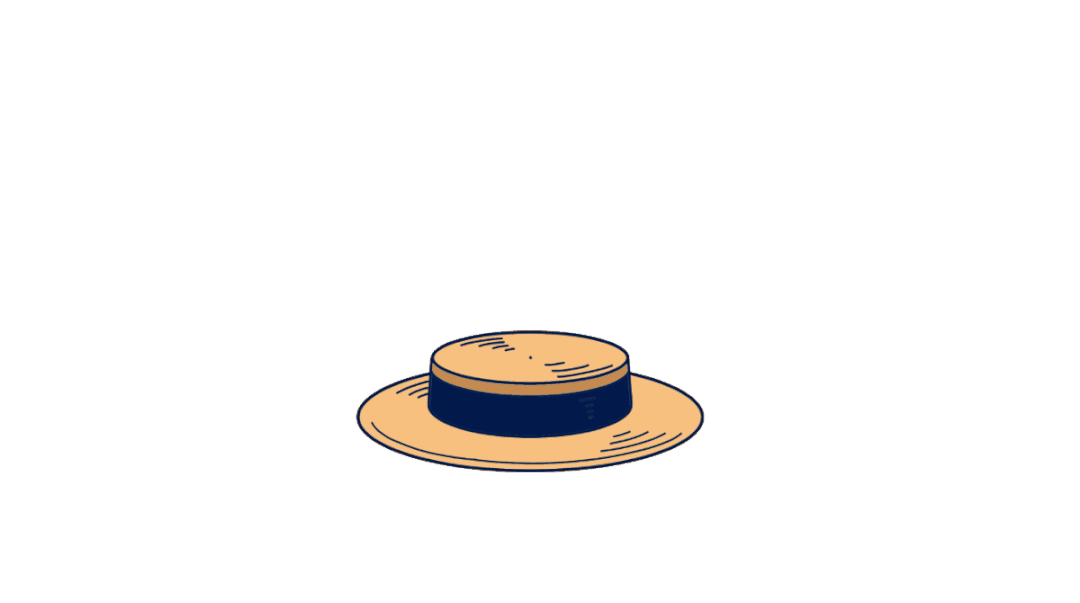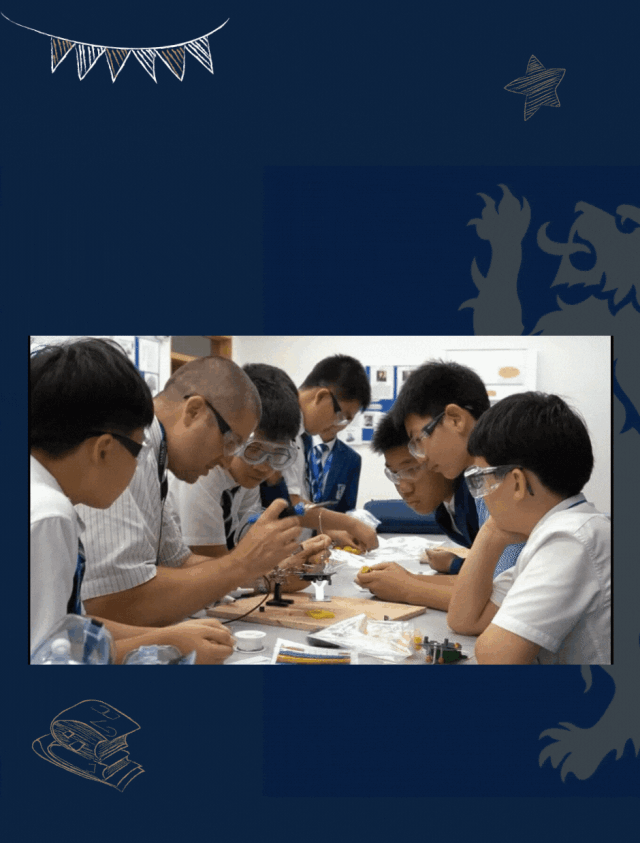What is the magic power of a Science Class at Harrow Haikou?
Why does it attract so many Upper School students to stay in the science labs?
We have a variety of experimental topics and provide students with opportunities for scientific practice that are closely related to daily life. We have all the scientific apparatus that our students expect to find and offer the problem-driven curriculum.
For our students, who are always curious, science class is like a wonderful game.
Not everyone has to be a scientist,
but we should all have a scientific mindset.
What do you want to study?
What are your hypotheses?
What data did you collect?
What apparatus do you need?
What do your experimental results show?
Does it match your hypothesis?
Every student who walks into the science classroom to carry out experiments will face a series of questions. This is the Thinking Training Diagram on the wall of the laboratory. It is a world of questions here.
When talking about the understanding of this subject, the science teachers at Harrow Haikou have a highly consistent principle; science is an inquiry-based subject and students should not just accept what they are told.
“We never just play the videos about the experiments that can be demonstrated directly for the students. So that’s why we turned the lab into our classroom.”
Joyce, the bilingual science teacher, said, “starting from Y6/G5, our students have been exposed to a large number of experiments. For those who have just entered Upper School, the most important thing is transition and interest cultivation. Thus, the experiments we designed are more interactive and the topics are closely related to our daily life. For example, ecosystem and chemical reactions are popular topics among our students.
This also conveys the core principle of Harrow’s science class: taking experiments as the guide, promoting question-driven learning, and linking the essence of science with real life.
Understanding inquiry-based classes: A good question is better than a good answer.
Let us explore an enquiry-driven science class at Harrow Haikou.
In the biology module, Y7/G6 students are studying microbiology. Using lactic acid bacteria as an introduction, the students make yoghurt together. Following the Thinking Training Diagram on the wall, students made a list of materials needed to make yoghurt and tried to answer the questions, including what probiotics are and what fermentation is, through experiments on their own.
In the yoghurt experiment, the bacteria will continue to reproduce under the adapted conditions and temperature. The students put the yoghurt in an aseptic box for fermentation, take it out the next day to record the fermentation process, and then use a microscope to observe and analyze the bacteria after fermentation. It allows students to experience the role and application of bacteria in practical operations. In this way, they would gain a better understanding of bacteria.
In the module of chemistry, Y7/G6 students have learned the factors that affect the rate of chemical reactions. Our chemistry teacher, Mr. Karl Fischer, used the reaction between carbonate and acid as an example to explore reaction rates.
The students get carbonate lumps, gravel, and powder, as well as acid of different concentrations. At the same time, they have their own record sheet for experimental investigation. They need to adjust the ratio of carbonate and acid and conduct the experiments many times. Then they need to record how much water is expelled from the measuring tube after the increase in carbon dioxide at a different time and observe the reactants. After that, the teacher would use the video as an auxiliary explanation and instruct students to deduce the formula by themselves. In this class, it’s not the teacher who simply tells the students what the formula is, but the students who discover it after their own practice.
If you are very interested in chemistry during the experiments, you can also choose the EA course in chemistry every Friday as an extracurricular supplement.
In the module of physics, Mr. Euan Tan decided to give a relaxing physical lesson for Y10/G9 students who just finished their exam week. In class, students learn about series and parallel circuits and calculate the size of resistors.
Students can learn circuit knowledge with the help of the teaching sources of voltage and circuits. By recording the changes in the value of the voltmeter, the students used mathematical knowledge to infer the values of resistance and current. This is also the basic content of IGCSE physics.
Like chemistry, if students want to extend their interest in physics, they can choose Electronic Club EA class
Combination of Chinese and British curricula, building a solid foundation for the IGCSE examinations
Science is within our reach in our lives, and it is not so complicated. Joyce, our bilingual science teacher, said, "Science can also be very perceptive. In the lower grades of Y6/G5~Y7/G6, we hope to stimulate students' interest through such fun experiences and lay the foundation for future advanced science courses.
For the higher grades such as Y8/G7~Y10/G9, the science courses follow the requirements of the Chinese National Curriculum (CNC) and incorporate elements of the Cambridge IGCSE curriculum. This means that students can not only study the national curriculum but also master the key skill of scientific inquiry required in the National Curriculum of England.
Unlike the traditional way of teaching subjects separately, our science classes take the form of a combination of STEM learning modules. We integrate three courses of biology, chemistry, and physics, focusing on cultivating students' comprehensive learning ability so that students can fully appreciate the close connection between science and life.
The constant scientific challenges
cultivate students’ abilities in solving real-world problems
Many science projects have been introduced to our campus, providing students with the opportunities of turning knowledge from the textbook into practice for solving real-world problems.
During the STEM Week last year, the task that G5/Y6 – G8/Y9 students have received is building a Roman aqueduct. And the winning team was selected based on the criteria of effective water diversion, aesthetics in design, and teamwork skills.
In the We Innovate Sustainable Development Project this year, AISL Harrow Global Community has worked with five world-renowned schools on the topic of Promoting Global Sustainability. Our Upper School students carried out an exciting competition in groups.
Focusing on global issues such as low carbon and environmental protection, Harrow students open their minds, look to the future, and apply the scientific knowledge they have learned to find creative answers to make the world a better place. The basic procedures of group discussion, group production and practical experiments allow students to cultivate their leadership and teamwork skills and develop their scientific spirit through the collision of thoughts.
At Harrow Haikou, We set up the step-by-step learning units for students to help students who are just entering the upper grades to develop a strong interest in science. Learning here is not only seen and touched; more importantly, it will ultimately guide our real-world practice. The barriers between classrooms, books, and the world we live in are broken down. That’s why we learn about science.





